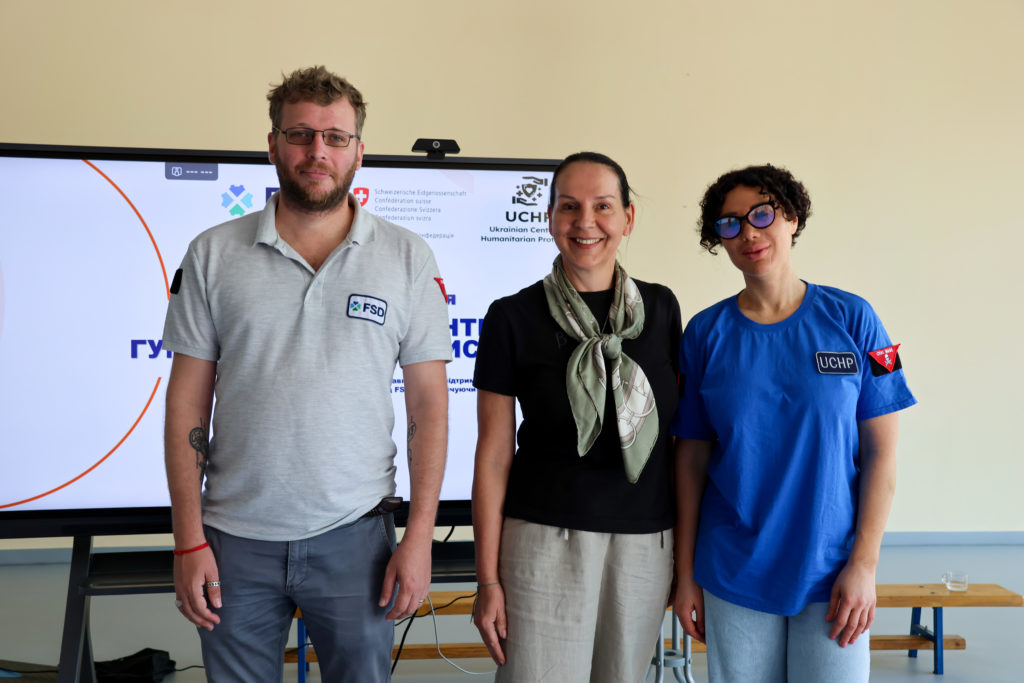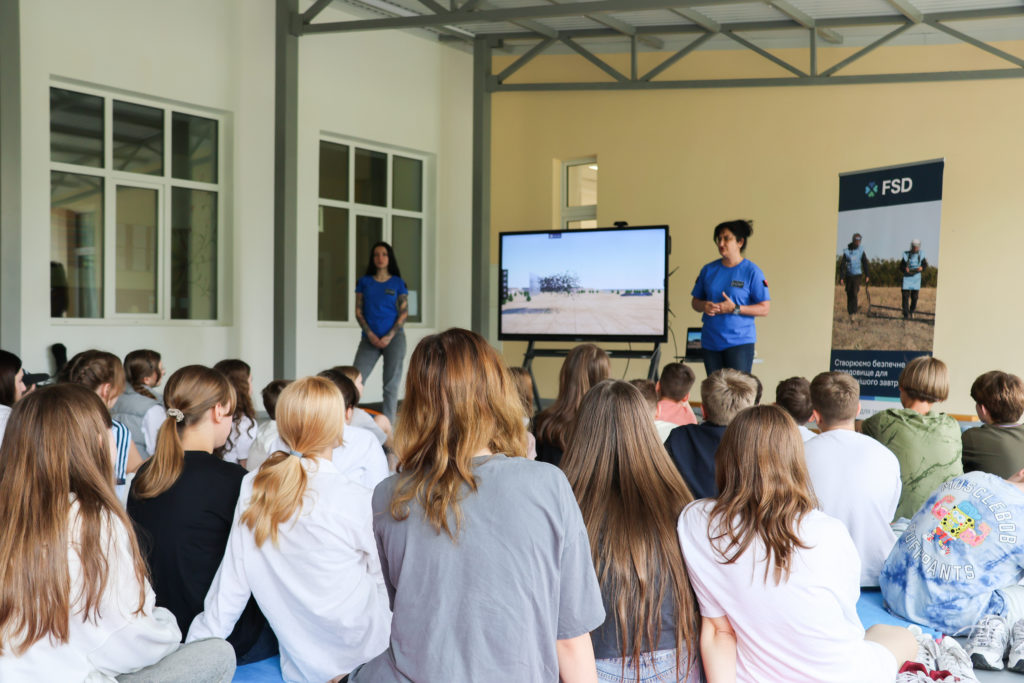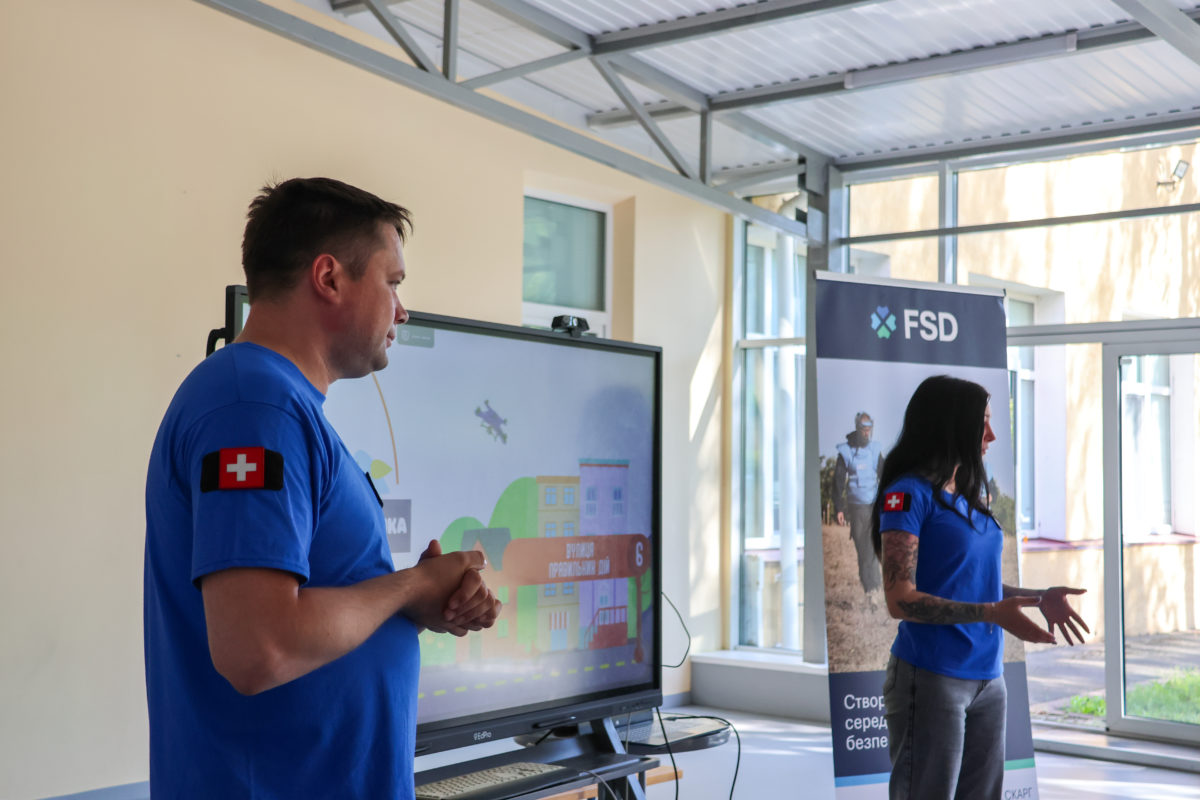In Ukraine, demining progresses every day. Fields are once again cultivable, roads are reopening, and schools are welcoming children back. But the task ahead remains vast — and the war is not over. In some regions, bombs, rockets, shells and other unexploded ordnance continue to accumulate. Anti-personnel and anti-tank mines remain hidden beneath the soil.
Faced with this reality, FSD — with the support of Switzerland — is working on two fronts: clearing land today, while preparing for tomorrow by transferring its expertise to Ukrainians so that they can carry on this work over the long term. The goal is to ensure that local actors are able to carry out demining operations independently, without relying on international operators.
It is with this in mind that FSD is currently supporting a promising Ukrainian NGO: the Ukrainian Center for Humanitarian Protection (UCHP), which emerged from a civil volunteer movement at the onset of the conflict.

“For my teams and for myself, this is not just a job. It’s a mission—a personal commitment. We want to rid Ukraine of mines and make the country safer for our children,” explains Anastasiia Korunova, Director of UCHP (pictured on the right).
For a period of three years, FSD will support UCHP at every level: demining operations, field surveys, risk education, as well as human resources, logistics, finance, and governance. The goal is clear: to enable UCHP to become an independent, fully operational, and internationally recognised organisation, capable of securing its own funding and meeting the rigorous standards of humanitarian demining.
A FIRST MILESTONE SUCCESSFULLY REACHED
In early June, a concrete first step was taken: a mine risk education team trained by FSD officially joined UCHP. Risk education is a key component of mine action — it helps prevent accidents by teaching communities the behaviours that can save lives.
The newly formed team led its first risk education session for students at the French International School in Pushcha-Vodytsia — a zone heavily impacted by the 2022 fighting and considered one of the most contaminated areas in the Kyiv region.
“What struck me most were the joyful reactions of the children — especially the youngest ones. Of course, the topic is serious, but they were very receptive. I’m convinced that teaching safety knowledge and reflexes from an early age can significantly reduce the number of mine-related accidents,” says Anastasiia Korunova, Director of UCHP.
“I was impressed by the team’s professionalism. Their preparation and commitment are exemplary,” added Lucas Chastand, Programme Manager at FSD.

TOWARDS FULLY INDEPENDENT OPERATIONAL CAPACITY
In the coming months, FSD will continue this knowledge-sharing effort. Every skill gained today, every locally trained team, represents another step towards a Ukraine capable of sustainably securing its land and protecting its population — even after international operators have withdrawn. Thanks to the support of Switzerland, which contributes both to demining operations on the ground and to the development of local capacities, Ukraine is gradually building the autonomy it needs to carry this mission forward in the long term.



